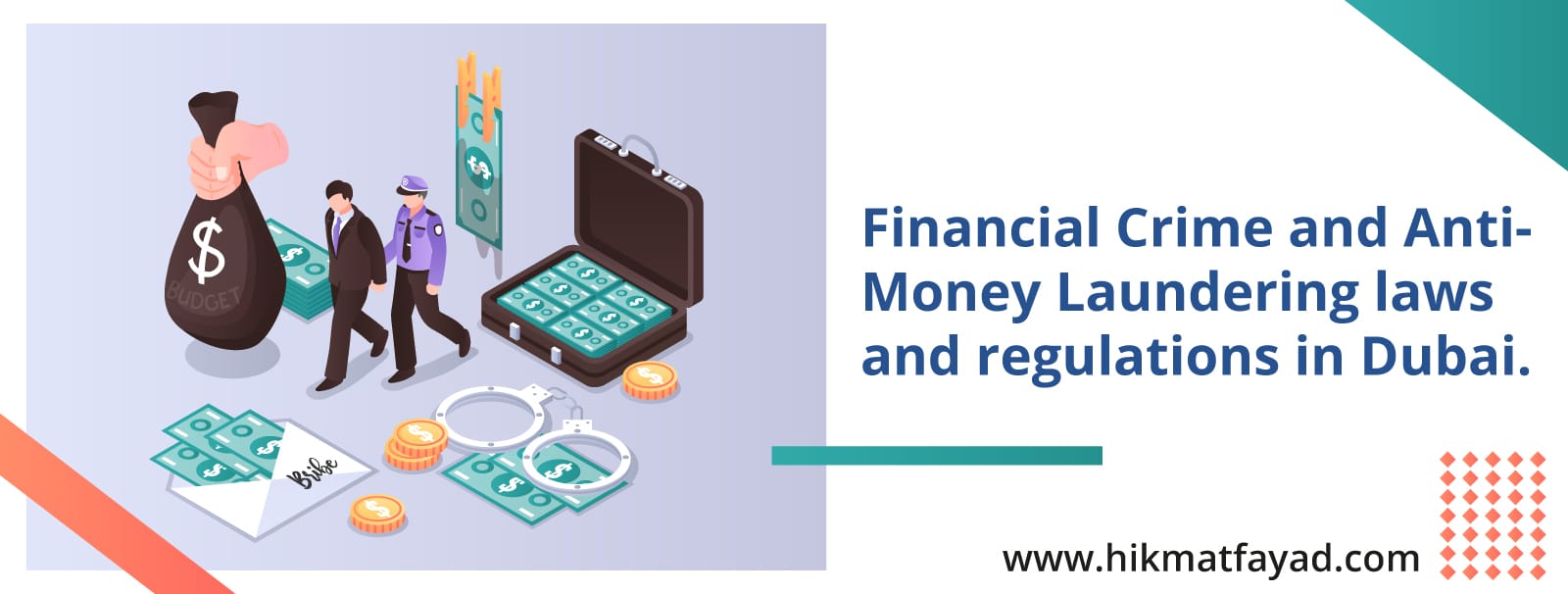What is Financial Crime?
Financial crime is a term used to describe a broad range of criminal activity that involves money or financial instruments. This can include bank fraud, tax evasion, money laundering, and insider trading. Financial crime can be very complex and often involve several different criminal offenses.
Financial crime can have a significant negative impact on the economy and cost companies and people billions of dollars annually.It can also negatively impact confidence in the financial system and lead to increased regulation and scrutiny.
Financial crime can be prosecuted at both the state and federal level, resulting in significant penalties, including prison time and fines. As a result, it’s crucial to comprehend the various forms of financial crime and be alert to any warning signs that someone may be committing a crime. Some of the most common types of financial crime include:
Bank fraud is a type of financial crime that involves the illegal use of a bank’s funds or assets. This can include activities such as forgery, identity theft, and embezzlement.
Tax evasion is a type of financial crime involving the illegal tax avoidance. This can include underreporting income, concealed income, and false deductions.
A type of financial crime called money laundering involves hiding the sources of money that has been obtained illegally. This can include converting cash into assets, transferring money between accounts, and using shell companies.
Insider trading is a type of financial crime involving the illegal use of information not available to the general public. This can include trading on confidential information, tipping others about impending deals, and
manipulating stock prices.
What is Anti-Money Laundering?
Anti-money laundering (AML) is the process of preventing illegal money from being laundered through legitimate businesses. AML programs are designed to track and report suspicious financial activity to prevent criminals from using the financial system to launder money.
AML programs vary by country but typically include requirements for banks to report large or suspicious transactions, keep records of customer transactions, and verify the identity of customers. Financial institutions that do not comply with AML regulations can face penalties, such as fines or revocation of their license to do business. Anti-money laundering (AML) laws protect the financial system’s integrity by preventing criminals from using it to launder money. AML laws require financial institutions to report suspicious financial activity to the government. Financial institutions that do not comply with AML laws can face penalties, such as fines or revocation of their license to do business.
AML programs vary by country but typically include requirements for banks to report large or suspicious transactions, keep records of customer transactions, and verify the identity of customers. Financial institutions that do not comply with AML laws can face penalties, such as fines or revocation of their license to do business.
AML programs protect the financial system’s integrity by preventing criminals from using it to launder money. AML programs require banks to report large or suspicious transactions, keep records of customer transactions, and verify customers’ identity. Financial institutions that do not comply
Financial Crime and Anti-Money Laundering Laws and Regulations in Dubai
To combat money laundering and terrorist financing, the United Arab Emirates (UAE) has implemented several financial crime and anti-money laundering laws and regulations. Some of the key laws and regulations in the UAE include:
The Anti-Money Laundering Law of 2001 aims to prevent using the UAE’s financial system for money laundering or terrorist financing activities.
The Terrorist Financing Law of 2003, which criminalizes the provision of financial support for terrorist activities.
The UAE’s Penal Code contains several offenses relating to money laundering and terrorist financing.
The UAE’s Central Bank Regulation No. 10 of 2002 sets out the requirements for anti-money laundering and combating the financing of terrorism (AML/CFT) for financial institutions in the UAE.
Financial institutions in the UAE must comply with the Central Bank Regulation No. 10 of 2002 and any other relevant regulations issued by the UAE Central Bank or other UAE government agencies. Failure to comply with these regulations can result in criminal penalties, including imprisonment and/or fines. To protect itself from financial crime and money laundering, the UAE has also implemented several measures for financial institutions. These measures include:
-Establishing customer identity verification procedures
-Establishing procedures for monitoring and reporting suspicious transactions
– Establishing procedures for maintaining records of customer transactions
-Implementing training programs for staff on how to detect and report financial crime and money laundering activities
The Dubai Financial Services Authority (DFSA) Rules
The Dubai Financial Services Authority (DFSA) Rules are a set of regulations that govern the financial services industry in Dubai. They were created in 2004 to help promote and protect the interests of consumers and investors. The DFSA Rules are regularly updated to reflect the latest developments in the financial services industry.
The DFSA Rules are divided into three parts:
– The Main Rules: These rules apply to all financial services providers in Dubai.
– The Derivatives Rules apply to firms that trade derivatives products.
– The Insurance Rules apply to firms that provide insurance products.
The DFSA Rules are designed to be read in conjunction with other laws and regulations, including the Dubai Financial Services Authority (Licensing and Supervision) Regulations 2004, the Central Bank of Dubai (Licensing and Supervision) Regulations 2004, and the Insurance Authority (Licensing and Supervision) Regulations 2007.
4.8.The Financial Intelligence Unit (FIU)
The Financial Intelligence Unit (FIU) is a government organization responsible for collecting and analyzing financial information. This information identifies and tracks criminal activity, including money laundering and terrorist financing. The FIU also works with other government agencies to investigate and prosecute financial crimes.


